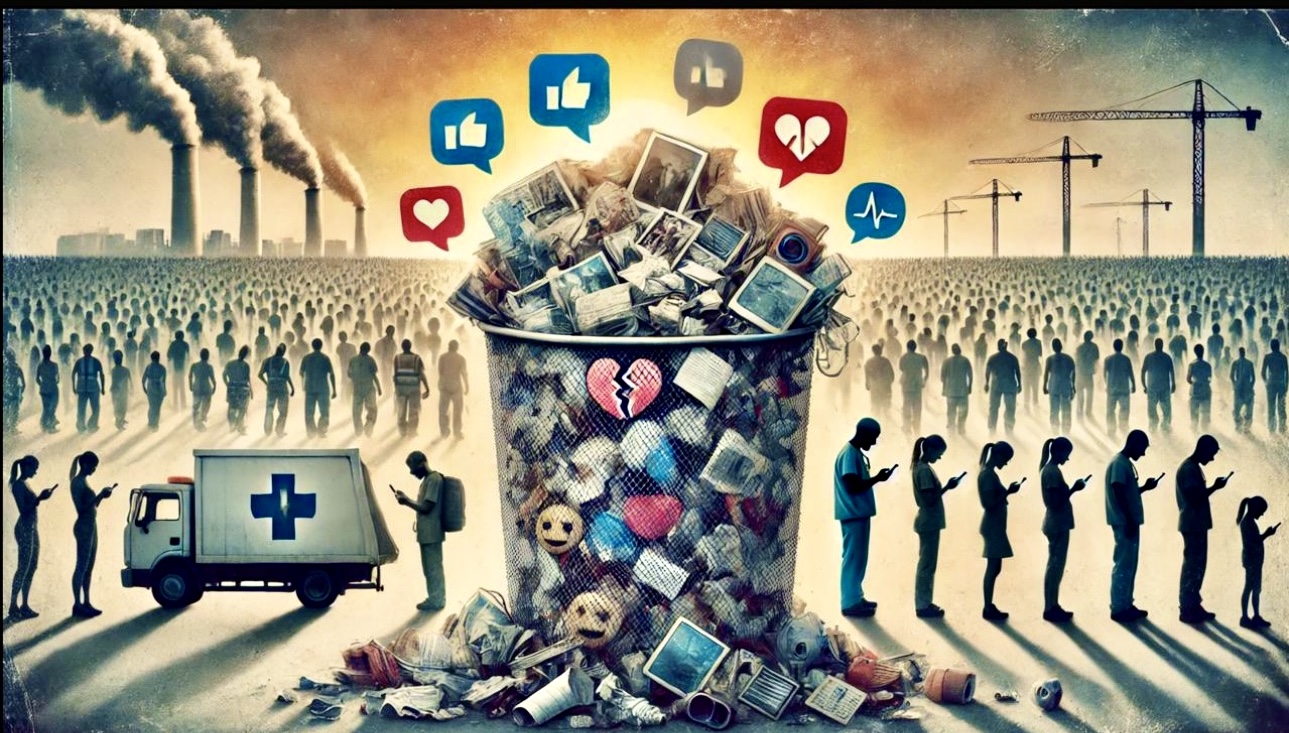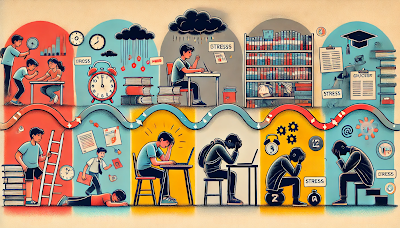Disposable Era: Multitasking & the Lost Art of Kindness

Introduction:
Welcome to the Disposable Era! We’re not just tossing out single-use plastics anymore—relationships, gratitude, and even basic kindness are hitting the trash too. With work emails, Instagram likes, and endless streaming shows vying for attention, we’ve become experts at juggling distractions but amateurs at being human.
We’ve perfected the art of multitasking, yet ironically, we achieve less and connect even less. Our days are packed with shallow interactions and fleeting emotions, leaving us too exhausted for the things that matter most—relationships, mindfulness, and compassion. In this world of convenience, depth feels like a luxury we can no longer afford.
Take our gratitude, for instance—it’s often as temporary as a trending hashtag. Healthcare workers, teachers, and delivery personnel went from being essential heroes to afterthoughts. Kindness, once a universal virtue, is now a rare act, often performed for clout rather than sincerity. And our obsession with disposability has transcended products, creeping into how we treat relationships, promises, and even our values.
So how did we get here? And more importantly, how can we escape this cycle of “use and dispose”? Let’s peel back the layers of our throwaway culture and explore what it will take to rebuild humanity in a world that’s forgotten how to care.
Part 1: The Multitasking Myth—Busy, Distracted, and Achieving Less
Multitasking is the ultimate productivity flex—or is it? Dinner with friends turns into email replies, Instagram likes, and outfit planning, all at once. Yet, real conversations? Those are lost in the noise.
We’ve normalised being constantly “on” while forgetting how to actually be—be present, be attentive, be engaged. Research shows that multitasking reduces efficiency and quality of work, yet we wear our busyness like a badge of honor. The cost? Strained relationships, fleeting memories, and a perpetual state of stress.
In our endless quest to do everything, we’ve mastered doing nothing meaningful. The result? A society “busy” enough to miss what truly matters. When was the last time you gave your full attention to anything—or anyone?
Part 2: Heroes on Loan—Gratitude with an Expiration Date
Healthcare workers, delivery drivers, teachers—we called them heroes during crises, only to forget their worth as soon as things stabilised. Today, we’re back to complaining about wait times and late deliveries.
This isn’t new. Soldiers return from war to find their sacrifices forgotten. Teachers shape generations but are undervalued and underpaid. Even the janitors who kept public spaces clean during pandemics are rarely acknowledged. A crisis might prompt temporary applause, but it doesn’t rewrite society’s indifference.
Society’s true backbone—its unsung heroes—rarely gets lasting appreciation. Whether it’s garbage collectors, soldiers, or teachers, gratitude fades as quickly as it trends. Our “thank you” culture needs a major upgrade.
Part 3: The Kindness Recession—Why We’re Emotionally Bankrupt
Kindness used to be free, but now it’s just rare. Holding doors, helping strangers, or offering a smile has been replaced by performative acts designed for social media applause.
Look around, and you’ll notice it everywhere: impatience at grocery lines, rudeness to service staff, and indifference to people in distress. Have we really become too busy to be kind? Or are we simply so consumed by our curated online personas that real empathy feels inconvenient?
Real empathy is vanishing in a sea of virtue signalling. If kindness doesn’t go viral, does it even matter anymore? Spoiler: it does.
Part 4: Swipe, Ghost, Repeat—The Disposable Relationship Epidemic
We don’t just toss out products; we toss out people too. Friendships? Ghosted. Relationships? Swiped away. It’s easier to cancel than to connect.
We’ve traded emotional effort for convenience. Conflict? Just block. Disagreements? Unfollow. Even family ties are fraying as the fast-paced digital age leaves little room for reconciliation. This instant gratification culture may save time in the moment, but it builds a lifetime of shallow bonds.
Why fix a bond when there’s always another match in the digital sea? This fast-food mentality of human interaction leaves us lonelier than ever, trading depth for fleeting convenience.
Conclusion: Reclaiming Humanity—One Act at a Time
If you’ve read this far without multitasking, you’re already winning. The truth is, reversing the disposable mindset starts with small, intentional choices: focus on the moment, offer lasting gratitude, and choose kindness even when no one’s watching.
Next time you feel the urge to scroll mid-conversation, skip an overdue “thank you,” or ghost a friend, pause. Reconnect. Remember: life isn’t disposable, and neither are people.
We’re not just fighting for attention spans or fleeting acts of kindness. We’re fighting for the very essence of what makes us human. Let’s slow down and build lives that aren’t just consumed but cherished.
Takeaways:
- Be present. Your notifications will survive.
- Gratitude isn’t just for trends—make it timeless.
- Practice kindness for its own sake, not for clout.
- Stop treating people like single-use plastics.
Call to Action:
Let’s rewrite the rules. Multitasking? Out. Mindfulness? In. Disposability? Over. Sustainability? Forever.
Share this (yes, ironically) if it resonated, and let’s build a world where humanity isn’t just a hashtag.



Nowadays people don't understand the value of 'live in the moment'.. Being a 90s kid it sometimes bothers me to see this., it happens a lot.., like on most of the occasions rather than experiencing the whole moment, people often start taking pics and recording videos. Its really agitating sometimes..
ReplyDeleteNot only because I am a millennial but also because I believe whenever we memorize anything we relive that moment., and we don't do it first just by taking the idea about it then scrolling the whole gallery., no., in fact we just memorize it in our mind.., without going through our phone..,but nowadays its getting the opposite..
Indeed I agree! Capturing the moment in order to show it to others has taken Precedence over Enjoying the moment wholeheartedly.
DeleteWe are now in generation where food need to be clicked first rather than enjoyed. If you went on a date then the world needs to know what all you did rather then enjoying the exclusivity of it.
ReplyDeleteI concur that in today's world, people are ungrateful. They fail to appreciate what others do for them. When hanging out with friends, everyone seems more interested in their phones, taking photos, making reels, or posting on social media. They only meet for the sake of meeting, always looking for someone else instead of valuing the company they already have. They prefer virtual friendships over real conversations. I am glad I have few people in life who actually value time and the company to spend with each other...
Yes we need to be mindful of the people who actually wants to spend the time with us. If some one has taken out time where schedules are jam-packed then for the time being we can put or gadgets aside and just bask in the glory of the moment.
DeleteTo this Date I prefer to use social media to just share word regarding my work instead of giving details of my personal life every second.